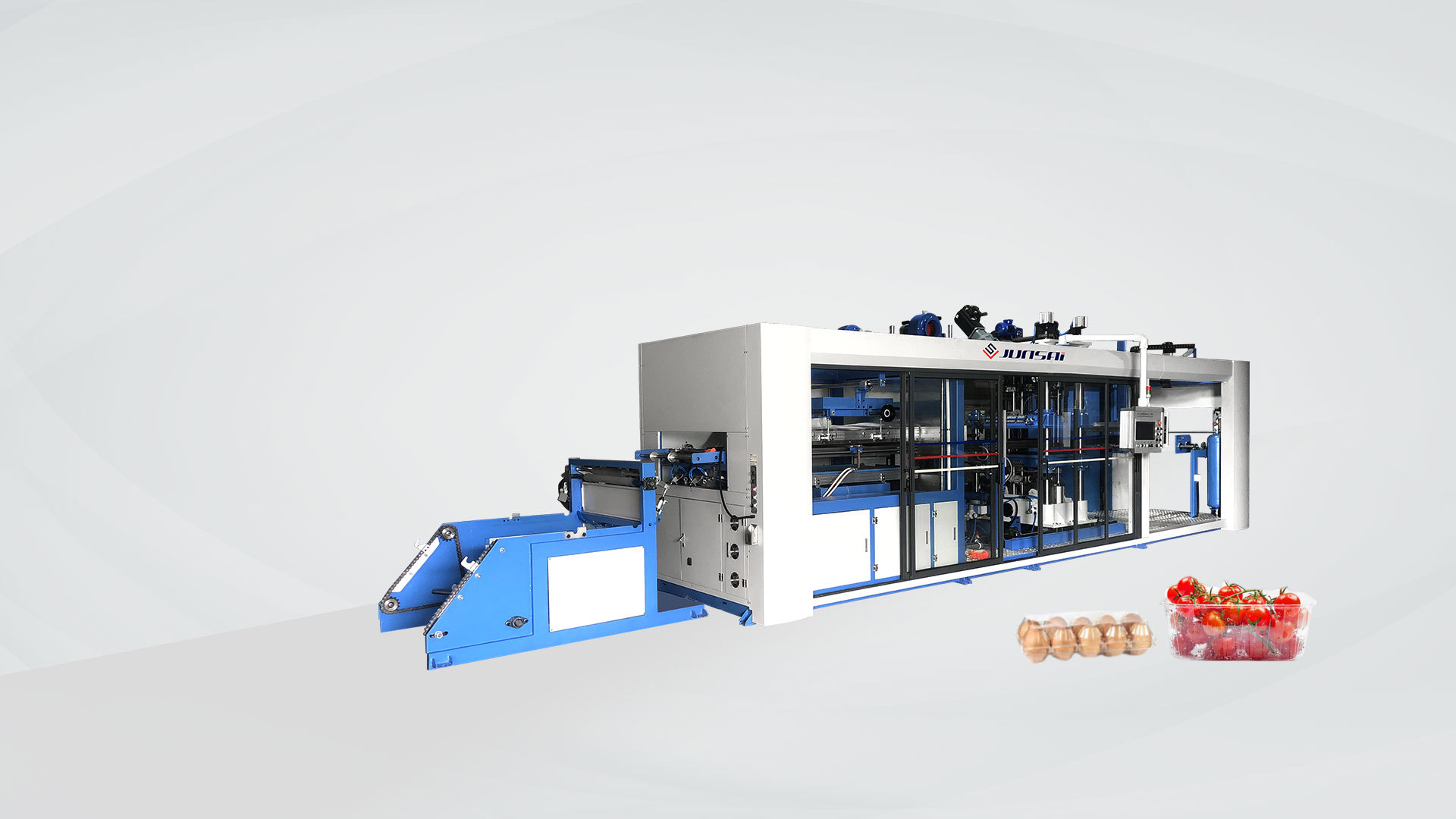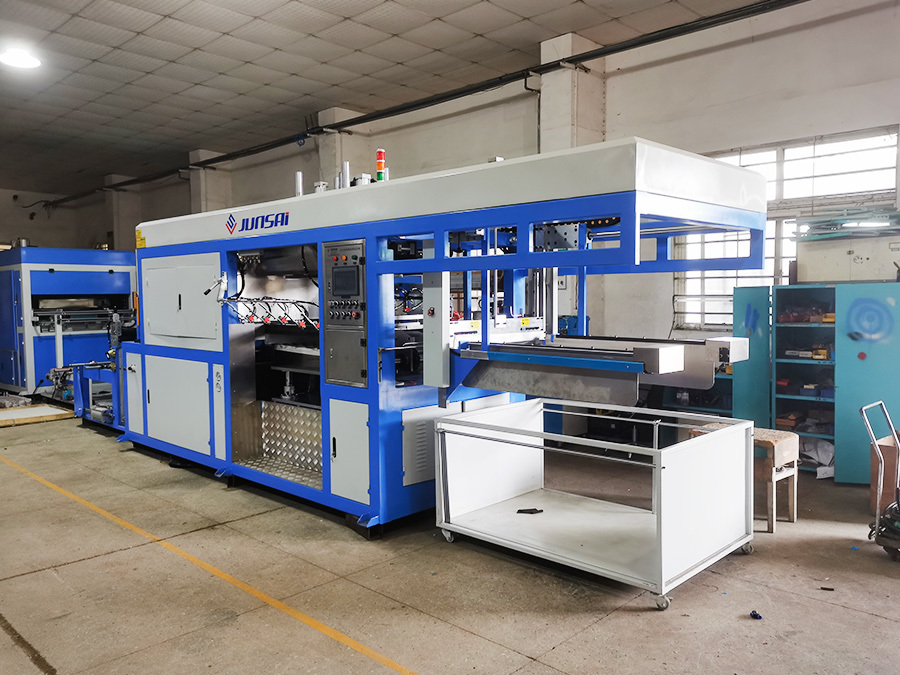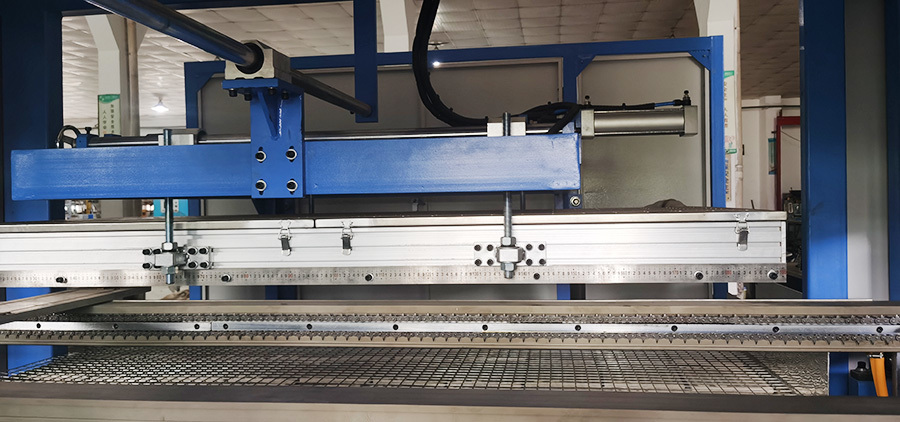Unlocking Efficiency: The Transformative Benefits of Pulp Thermoforming Machines from China
2025-11-15
Unlocking Efficiency: The Transformative Benefits of Pulp Thermoforming Machines from China
Table of Contents
Introduction to Pulp Thermoforming Machines
What is Pulp Thermoforming?
Advantages of Pulp Thermoforming Machines from China
Cost-Effectiveness
Sustainability and Environmental Benefits
Versatility in Production
Ke
Unlocking Efficiency: The Transformative Benefits of Pulp Thermoforming Machines from China
Table of Contents
- Introduction to Pulp Thermoforming Machines
- What is Pulp Thermoforming?
- Advantages of Pulp Thermoforming Machines from China
- Key Features of Chinese Pulp Thermoforming Machines
- Applications in the Paper Manufacturing Industry
- Choosing the Right Pulp Thermoforming Machine
- Case Studies: Success Stories
- Future Trends in Pulp Thermoforming
- Frequently Asked Questions
- Conclusion
Introduction to Pulp Thermoforming Machines
Pulp thermoforming machines represent a revolutionary shift in how the paper manufacturing industry approaches production. As companies strive to enhance efficiency and reduce costs, the demand for innovative technologies continues to grow. Originating from China, these machines combine advanced engineering with eco-friendly practices, making them a vital asset for manufacturers seeking to optimize their operations.
What is Pulp Thermoforming?
Pulp thermoforming is a specialized process that allows manufacturers to create molded products from recycled paper pulp. This technique involves heating and shaping the pulp into various forms, which can serve multiple purposes, from packaging to consumer goods. Manufacturers leverage this technology to produce high-quality, sustainable products that meet the increasing demand for eco-friendly alternatives in various industries.
Advantages of Pulp Thermoforming Machines from China
The advantages of incorporating pulp thermoforming machines from China into production lines are extensive. Below are some key benefits that manufacturers can expect:
Cost-Effectiveness
Investing in pulp thermoforming machines significantly reduces production costs. With lower energy consumption and efficient raw material use, manufacturers can achieve higher profit margins. The advanced technology employed in these machines minimizes waste, leading to further cost savings.
Sustainability and Environmental Benefits
As sustainability becomes a central focus for businesses worldwide, pulp thermoforming machines offer a green solution. These machines utilize recycled paper, reducing the need for virgin materials and minimizing environmental impact. By producing biodegradable products, manufacturers can contribute to a circular economy, enhancing their brand's reputation and complying with environmental regulations.
Versatility in Production
Pulp thermoforming machines are highly versatile, capable of producing a wide range of products. From food packaging to disposable tableware, their adaptability allows manufacturers to diversify their offerings and cater to various market needs. This versatility not only increases production capabilities but also enables businesses to enter new markets more easily.
Key Features of Chinese Pulp Thermoforming Machines
Pulp thermoforming machines from China boast several innovative features that enhance their effectiveness and efficiency. Understanding these features is crucial for manufacturers looking to invest in this technology.
Advanced Control Systems
Modern pulp thermoforming machines come equipped with sophisticated control systems that allow for precise temperature and pressure adjustments. This automation minimizes human error and ensures consistent product quality, which is essential for maintaining customer satisfaction.
High Production Speed
One of the standout features of Chinese machines is their ability to produce high volumes in a short time frame. With rapid cycle times, manufacturers can meet growing demand without sacrificing quality.
User-Friendly Interface
An intuitive user interface simplifies operation and maintenance, reducing the learning curve for staff. This ease of use can lead to increased productivity and less downtime due to training.
Energy Efficiency
These machines are designed with energy conservation in mind. By utilizing advanced technologies, they significantly reduce electricity consumption, helping manufacturers cut operational costs while promoting sustainability.
Applications in the Paper Manufacturing Industry
The applications of pulp thermoforming machines are diverse and impactful. Here are some key areas where these machines are making a difference:
Food Packaging
In the food industry, pulp thermoforming machines are revolutionizing packaging solutions. They create moisture-resistant, biodegradable containers that ensure food safety while being environmentally friendly.
Consumer Goods
From egg cartons to electronic packaging, the versatility of pulp thermoforming machines allows manufacturers to produce a range of consumer products that meet stringent quality standards.
Medical Supplies
With the increasing demand for hygienic and disposable products, pulp thermoforming machines are used to create medical packaging that ensures sterility and compliance with health regulations.
Choosing the Right Pulp Thermoforming Machine
Selecting the ideal pulp thermoforming machine for your production needs requires careful consideration. Here are some factors to evaluate:
Production Volume
Assess your production requirements to determine the machine's capacity. High-volume manufacturers should consider machines with faster cycle times and larger molds.
Material Compatibility
Ensure the machine can handle the specific pulp materials you intend to use. Compatibility is crucial for achieving optimal product quality.
Technical Support and Service
Choose suppliers who offer robust technical support and after-sales service. This support can be invaluable for maintaining machine performance and addressing any issues that arise during operation.
Case Studies: Success Stories
Examining real-world examples can provide valuable insights into the benefits of pulp thermoforming machines. Here, we highlight a few success stories:
Case Study 1: GreenPack Solutions
GreenPack Solutions, a leading packaging manufacturer in China, adopted pulp thermoforming technology to transition from plastic to biodegradable packaging. By embracing this change, they reduced production costs by 30% and increased their market share significantly.
Case Study 2: EcoGoods Manufacturing
EcoGoods Manufacturing implemented pulp thermoforming machines to enhance their product line. As a result, they achieved a 40% reduction in material waste and successfully appealed to environmentally conscious consumers, leading to a 25% increase in sales.
Future Trends in Pulp Thermoforming
The future of pulp thermoforming machines is promising, with several trends emerging in the industry:
Integration of Smart Technology
The integration of IoT and smart technologies will likely revolutionize pulp thermoforming machines. These advancements will enable real-time monitoring and data analytics, leading to improved efficiency and predictive maintenance.
Increased Demand for Sustainable Solutions
As global awareness of environmental issues continues to rise, the demand for sustainable packaging solutions will drive growth in the pulp thermoforming market. Manufacturers must be prepared to adapt to these changing consumer preferences.
Frequently Asked Questions
1. What materials can be used in pulp thermoforming?
Pulp thermoforming primarily utilizes recycled paper, cardboard, and other cellulose-based materials.
2. How does pulp thermoforming compare to plastic packaging?
Pulp thermoforming offers a more sustainable alternative to plastic packaging, being biodegradable and derived from renewable resources.
3. What is the average production speed of pulp thermoforming machines?
Production speeds can vary, but many modern machines can achieve cycle times of under one minute per item.
4. Are pulp thermoforming products safe for food contact?
Yes, pulp thermoforming machines produce products that are safe for food contact and comply with health regulations.
5. How can I ensure the quality of products produced by these machines?
Regular maintenance, proper operation training, and the use of quality raw materials are key to ensuring product quality.
Conclusion
Pulp thermoforming machines from China represent a significant advancement in the paper manufacturing sector, offering numerous benefits that enhance efficiency, sustainability, and versatility. As the demand for eco-friendly products continues to rise, investing in this technology positions manufacturers to meet industry challenges head-on. By understanding the features, applications, and future trends associated with pulp thermoforming, businesses can unlock new opportunities and drive greater profitability in an increasingly competitive market.
Keywords:
Related information
Unlocking Efficiency: The Transformative Benefits of Pulp Thermoforming Machines from China
Unlocking Efficiency: The Transformative Benefits of Pulp Thermoforming Machines from China
Table of Contents
Introduction to Pulp Thermoforming Machines
What is Pulp Thermoforming?
Advantages of Pulp Thermoforming Machines from China
Cost-Effectiveness
Sustainability and Environmental Benefits
Versatility in Production
Ke
2025-11-15
Exploring Affordable Tabletop Vacuum Forming Machines for Efficient Manufacturing
Vacuum forming is a widely used technique in the manufacturing industry, particularly for creating packaging materials, prototypes, and custom products from thermoplastic sheets. For businesses looking to optimize their operations without incurring significant costs, cheap tabletop vacuum forming machines present an attractive option. These machines are designed for small-scale production, making
2025-11-12
Discover the Advantages of the Best Plastic Vacuum Forming Machines: A Comprehensive Guide
Discover the Advantages of the Best Plastic Vacuum Forming Machines
Table of Contents
1. Introduction to Plastic Vacuum Forming Machines
2. What is Vacuum Forming?
3. Advantages of Plastic Vacuum Forming Machines
3.1 Cost-Effectiveness in Production
3.2 Versatility in Applications
3.3 Increased Efficiency and Speed
3.4 High-Quality Output
3.5 Sustainabilit
2025-11-09












